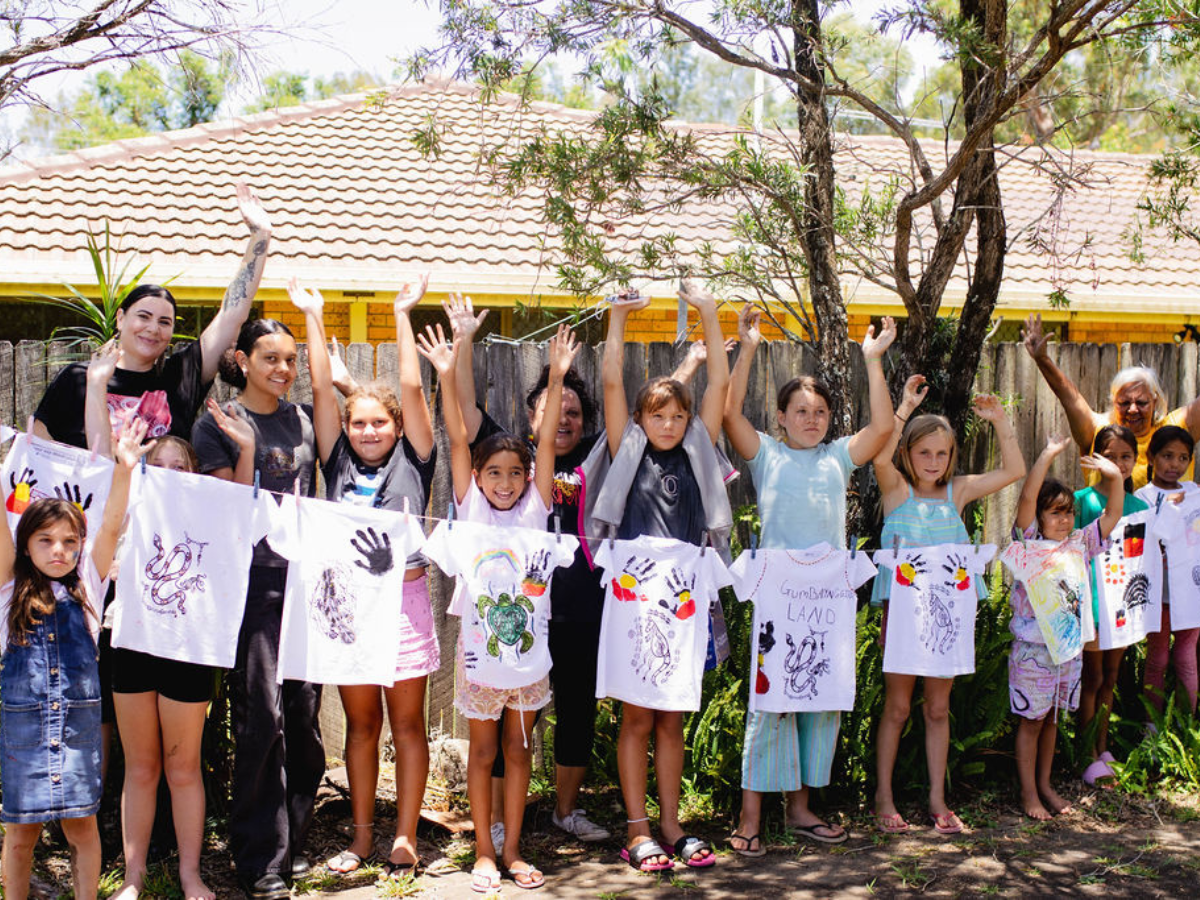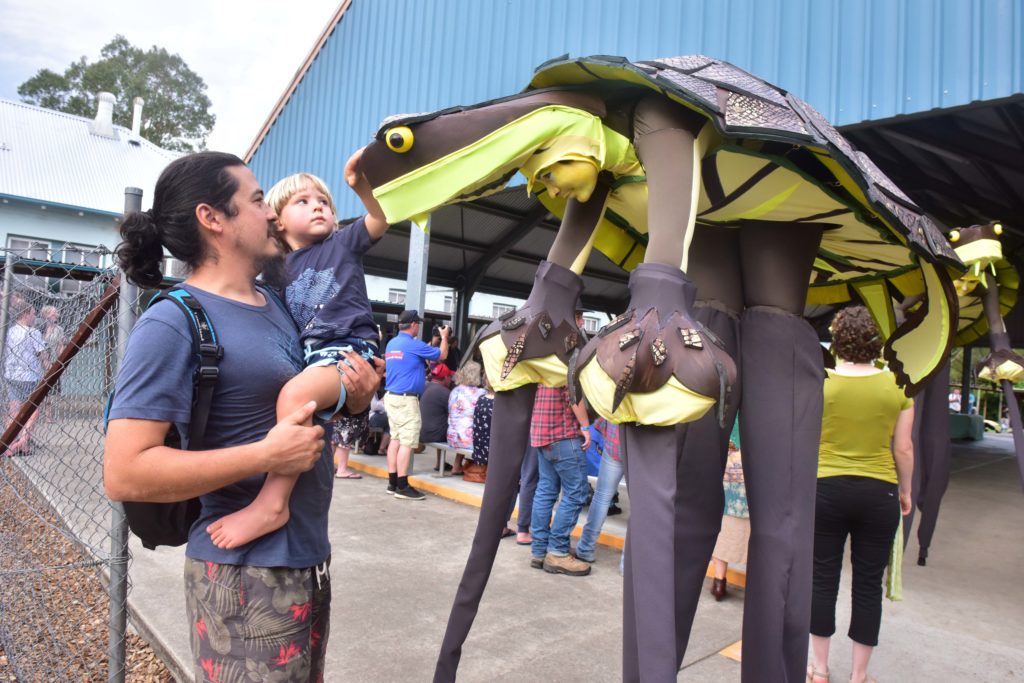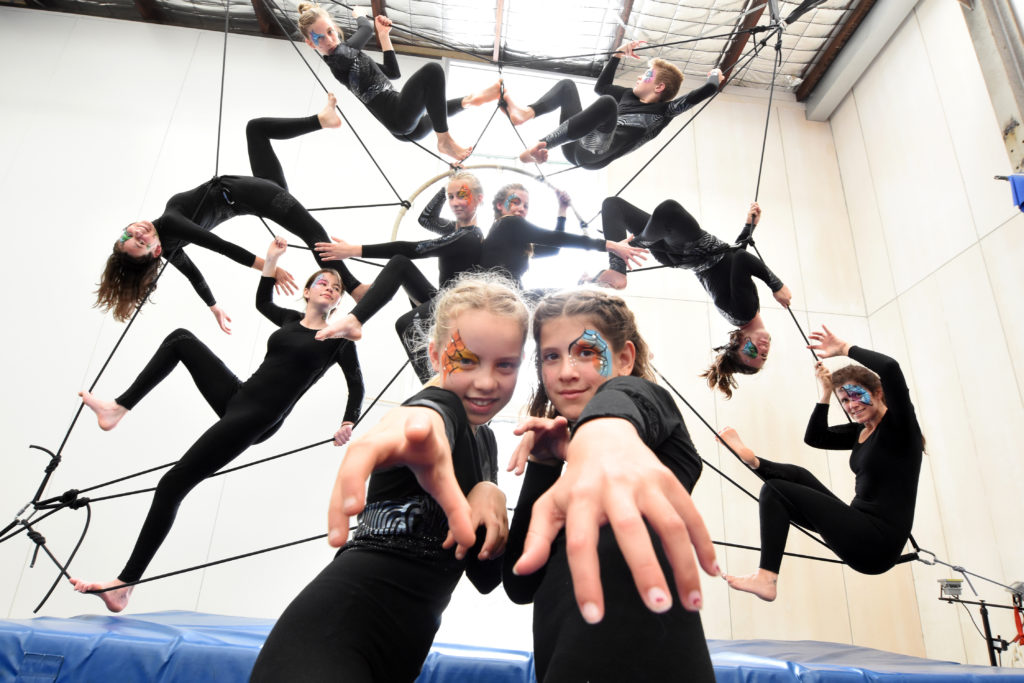Foundation for Rural & Regional Renewal (FRRR)
The beautiful Mid-North Coast of NSW is Gumbaynngirr country, with 15,000 Aboriginals living across the region. COVID had significant impacts on the health and wellbeing of local Gumbaynngirr women in particular: local services found it difficult to meet the needs of community, while research conducted with Gumbaynnggirr people on the ramifications of COVID reported that the restrictions on social connection had serious negative impacts on social and emotional wellbeing and overall health.

Based in Toormina at the southern end of Coffs Harbour, Happy Boxes Project Ltd aims to alleviate barriers to accessing self-care items for Aboriginal women in remote communities by providing packages of self-care products such as soap, deodorant, and shampoo – otherwise known as ‘Happy Boxes’). Recognising the impacts that COVID-19, Happy Boxes capitalised on their connections to the local community to significantly scale up services and programs at their new community hub: Nyami Gawbarri (Women Gathering).
Nyami Gawbarri was able to support local community members to volunteer their time in the space to pack Happy Boxes for remote communities. Together they were able to pack and distribute 689 Happy Boxes to 22 remote communities throughout Australia. This meant that at least 689 women didn’t have to go without essential hygiene products.
In addition, the Happy Boxes team hired a number of local Aboriginal women to provide programs for hub users and consequently the hub went from being open one day per week to five days, offering programs on topics ranging from cultural meditation, Aboriginal art and cooking, to a five-week program called ‘Mob Radio’ – teaching local teenagers how to be radio presenters.
Critical health services that have traditionally had social barriers to access, such as cervical screening programs, also ran out of the hub. Another outcome of being open five days per week was the creation of an Intensive Support Reintegration Program for teenagers consistently being suspended and disengaged from school. Local schools are now referring their students to Nyami Gawbarri as the organisation can provide a culturally-safe space to spend their suspension, giving back to the local and national communities.
The impact that the project had was described by a local participant:
“The programs for these young women will positively change lives. Providing opportunities for connection and supporting our young women to develop their identity and sense of belonging will have such a huge life lasting impact for them, their families and our Community. Nyami Gawbarri is supporting the development of proud, determined and connected young Jindas.” ~ Anonymous
The level of need for Nyami Gawbarri, and the positive impact that the program of activities over the last twelve months has had for the hub has meant that Nyami Gawbarri is now evolving to become a separate entity and permanent community hub for Gumbaynnggirr women. Critically, throughout this period the project coordinator was able to secure government funding for their role, and hence will be able to continue Nyami Gawbarri’s commitment to provide a culturally-safe space and a plethora of programs beyond the completion of the FRRR-funded project.
Emma Sullings, Chief Executive Officer of Happy Boxes Project Ltd, explains the impact that this grant has had for the hub and the community:
“We are extremely proud of the establishment and succession of a community hub. Nyami Gawbarri stands as a testament to the significance of creating dedicated spaces for women to access a range of services and programs tailored to their unique needs. It is a symbol of community strength, unity and empowerment.”
This inspiring hub has capitalised on opportunity and scaled for the community good – and in the process, showcased how support for locally designed and led initiatives can have long-running positive outcomes. These impressive efforts were supported by a $50,000 grant from FRRR’s Strengthening Rural Communities – Rebuilding Regional Communities program, funded by the Australian Government.
In the historic town of Wingham, in the Manning River Valley on the NSW Mid-North Coast, Circatus offers classes in general circus skills, stilts and aerial skills. It might sound very niche for a rural town, but the program actually fills an important gap –the need for non-competitive and expressive arts opportunities for the community to engage with.
Circatus gives the community – mostly young people – access to diverse and vibrant circus and creative arts in an inclusive and nurturing environment. Since 2009 just one trainer, founder Jill Watkins ran the show, averaging 90 students and 17 classes a week. Local catchment communities include Hallidays Point, Bobin, Elands, Mount George, Taree and Landsdowne, all within 20-50 minutes drive, however there were some families who would travel from as far as 75kms away to attend.
Rethinking the model for sustainability
Originally operating as a sole trader business, by the end of a decade of operation it became clear that the organisations’ structure needed to be rethought. Circatus had built quite a little community through classes at its Wingham space, performance projects at community events, delivery of circus as a sports elective at Wingham High School, weekly scheduled classes for a third of the 100 families in the Manning Valley Community who home school their children, and wellbeing workshops for teenagers with disability, Aboriginal youth and children in out-of-home care. One supporter wrote that “While training students in the physical circus arts, [Jill] also facilitates life skills such as confidence building and teamwork.”
Jill brought together a passionate group of five committee members and 18 volunteers and Circatus entered a new model of operation as a NFP, opening the doors for the beginning of Term 3 2020 and operating five classes a week. But building capacity to deliver more classes was a priority. Circatus needed a group of trainers to make the program sustainable into the future. Most performing arts work is in metropolitan areas, so regional circus programs find it very difficult to attract circus artists to teach.
A grant to build capacity
The group successfully applied to the Small & Vital stream of Strengthening Rural Communities to help fund a ‘Train the Trainer’ program. This would provide weekly mentoring and coaching for ten volunteer trainers, supported by a weekend intensive session for aerial skills. The funding will also cover documentation of a teaching manual, supported by videography to be utilised by these 10 future Circatus teachers. As of February 2021, the project is underway and there are six new trainers teaching a variety of circus skills to locals aged four years to adult.
What a win-win outcome! Trainer participants are supported to develop their leadership skills and an employment pathway, AND the general community has the opportunity to continue enjoying a vibrant and culturally enhancing experience, right on their doorstep. This circus can stay in town – watch this space for more great outcomes from this project!



